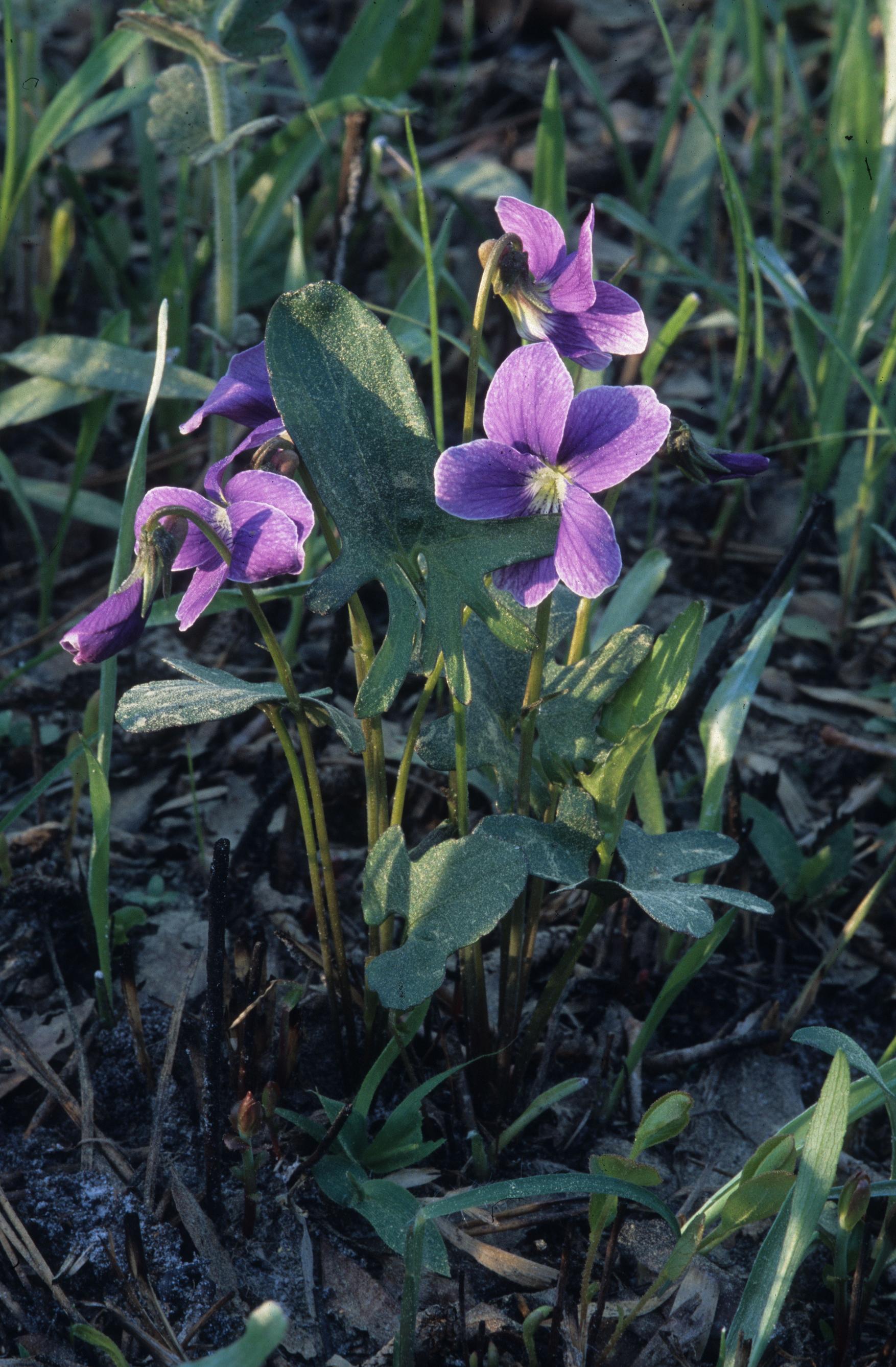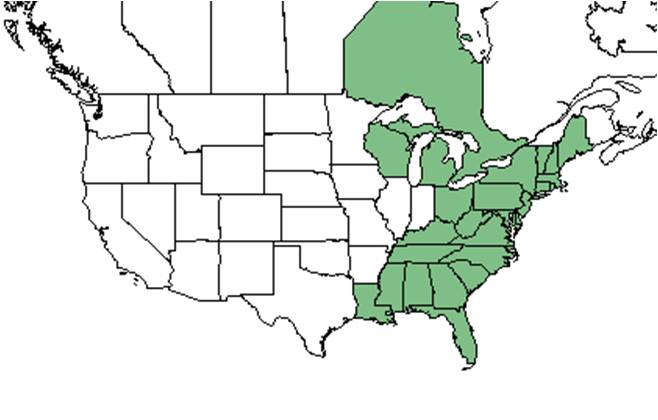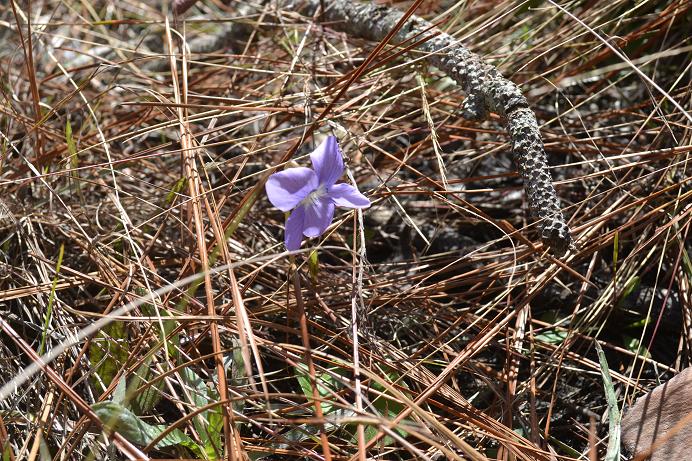Difference between revisions of "Viola palmata"
| Line 25: | Line 25: | ||
==Ecology== | ==Ecology== | ||
===Habitat=== <!--Natural communities, human disturbed habitats, topography, hydrology, soils, light, fire regime requirements for removal of competition, etc.--> | ===Habitat=== <!--Natural communities, human disturbed habitats, topography, hydrology, soils, light, fire regime requirements for removal of competition, etc.--> | ||
| − | Viola palmata was found to be extremely vulnerable to disturbance. It occurred in greater abundance in natural longleaf stands than planted longleaf stands (Kirkman et al 2004). It can be found in longleaf pine-wiregrass savanna communities (Kirkman et al 2004). | + | ''Viola palmata'' was found to be extremely vulnerable to disturbance. It occurred in greater abundance in natural longleaf stands than planted longleaf stands (Kirkman et al 2004). It can be found in longleaf pine-wiregrass savanna communities (Kirkman et al 2004). |
===Phenology=== <!--Timing off flowering, fruiting, seed dispersal, and environmental triggers. Cite PanFlora website if appropriate: http://www.gilnelson.com/PanFlora/ --> | ===Phenology=== <!--Timing off flowering, fruiting, seed dispersal, and environmental triggers. Cite PanFlora website if appropriate: http://www.gilnelson.com/PanFlora/ --> | ||
It is a summer forb (Kirkman et al 2004). | It is a summer forb (Kirkman et al 2004). | ||
Revision as of 15:39, 13 August 2015
| Viola palmata | |
|---|---|

| |
| Photo was taken by Gil Nelson | |
| Scientific classification | |
| Kingdom: | Plantae |
| Division: | Magnoliophyta – Flowering plants |
| Class: | Magnoliopsida – Dicotyledons |
| Order: | Violales |
| Family: | Violaceae |
| Genus: | Viola |
| Species: | V. palmata |
| Binomial name | |
| Viola palmata L. (pro sp.) | |

| |
| Natural range of Viola palmata from USDA NRCS Plants Database. | |
Common name: early blue violet
Contents
Description
Distribution
Ecology
Habitat
Viola palmata was found to be extremely vulnerable to disturbance. It occurred in greater abundance in natural longleaf stands than planted longleaf stands (Kirkman et al 2004). It can be found in longleaf pine-wiregrass savanna communities (Kirkman et al 2004).
Phenology
It is a summer forb (Kirkman et al 2004).
Seed dispersal
It is a myrmecochorous (ant-dispersed) species (Kirkman et al 2004). However, it can also be dispersed explosively (Kirkman et al 2004).
Seed bank and germination
Fire ecology
Pollination
Use by animals
Diseases and parasites
Conservation and Management
Cultivation and restoration
Photo Gallery
References and notes
Kirkman, L. K., K. L. Coffey, et al. (2004). "Ground cover recovery patterns and life-history traits: implications for restoration obstacles and opportunities in a species-rich savanna." Journal of Ecology 92: 409-421.
